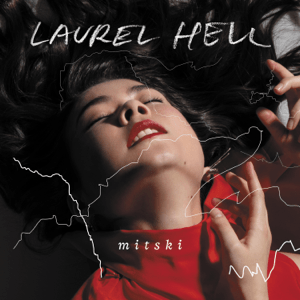Free Therapy: A Review of Laurel Hell by Mitski

“Laurel Hell,” released by label Dead Oceans, is Mitski’s sixth studio album.
March 4, 2022
Japanese-American singer-songwriter Mitski produces work often described as “free therapy;” while simultaneously being a reason for therapy. Few artists can capture the feeling of loneliness and true disparity like Mitski can.
Time after time, Mitski has provided albums filled with tracks of seemingly random words that are strung together in such a way that brings forth waves of emotion; her latest project, Laurel Hell, is no exception. This project was preceded by four singles: “Working for the Knife,” “The Only Heartbreaker,” “Heat Lightning” and “Love Me More.” If the titles of those singles do not clue you in on how depressing this album is, you are in for a rude awakening. Laurel Hell is Mitski’s first full project since her 2018 album Be the Cowboy and is a spectacular follow up.
The album opens with the song “Valentine, Texas,” which showcases Mitski’s mastery of the dark and beautiful, as well as her prowess as a composer. The opening track sets the stage enough for the tone of the album to be established, while the tempo change in the middle of the song alludes to the unpredictability the project still holds. The whole album consists of dream-like instrumentals that make each song feel like its own cinematic experience, while simultaneously exuding that cohesive Mitski sound that keeps her fans and depressed young-adults alike coming back for more.
The entire album is undeniably beautiful, and the last two songs of Laurel Hell bring the journey to a close marvelously. “I Guess,” features a sound that can only be described as pure melancholy. It has repeating lyrics about Mitski reminiscing about the end of a relationship, and the last line of the song features her saying thank you for the experience. The song’s lyrics line up with the album coming to the close, and the thank yous at the end could be interpreted as a tribute to the listener for following her on the journey that is Laurel Hell. In a twist of irony, the final track of the album, “That’s Our Lamp,” features a faster song with more pop-like vocals and instrumentals that make me think of a roller rink in the ’80s. This song ends the album on a seemingly high note, but the lyrics about a failing relationship still keep the sadness only Mitski can evoke, still floating in the air.
Many songs on the album feature synth instrumentals and quicker tempos that lures a listener into thinking that maybe this song will not be that sad, but paying attention to the lyrics even slightly dashes those hopes instantly. Overall, this whole album feels more produced than her older projects – which is not a bad thing at all. This increase in production only displays that Mitski is evolving as an artist and her sound is evolving with her. Even with a slightly different sound, the album still screams “Mitski.” With numerous artists experimenting with new sounds under the guiding hand of Jack Antinoff, it is refreshing to have a sad-girl artist not be produced by him. Laurel Hell fully thrust Mitski into the dream pop soundscape and every second of it feels like floating through space while a lingering sense of sadness refuses to let you go.







